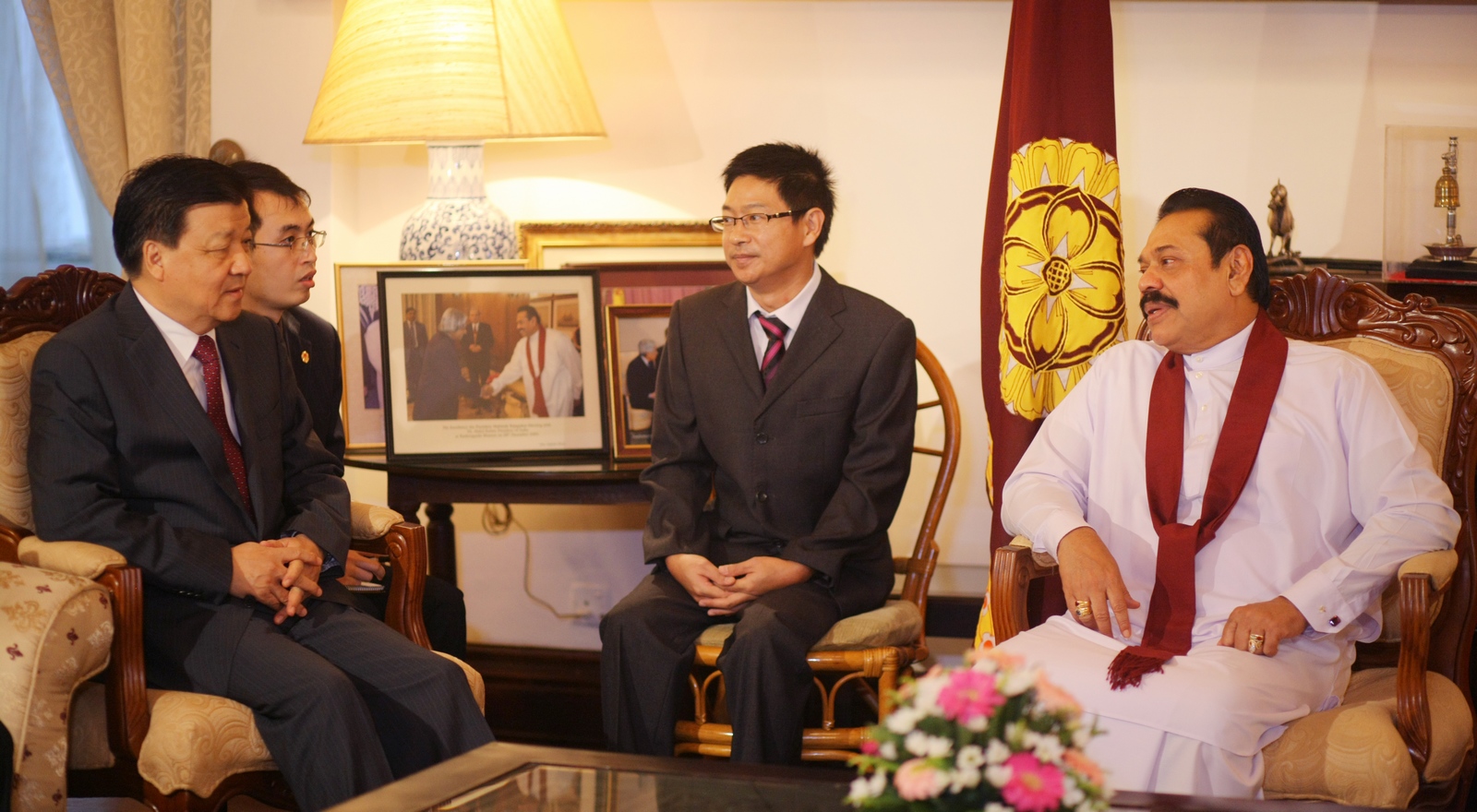
Since the defeat of the Tamil Tigers in 2009, China has not only emerged as the main strategic actor in Sri Lanka, it has also replicated a familiar set of development and partnership strategies in the process. For instance, in 2012 Chinese companies completed the construction of a deep water port at Hambantola at an estimated cost of $450 million. More recently, the Sri Lankan Port authority announced a Chinese-backed $1.4 billion deal for the reclamation of 568 acres of land and construction of a new port near Colombo. Accordingly, China’s growing involvement in the Sri Lankan maritime sector is starting to bear all the hallmarks of its development of the Pakistani port of Qwadar. Currently managed by China Overseas Port Holdings, the port stands at the east entrance of the Straits of Hormuz and is set to be linked by road, rail and pipeline infrastructure to the resource-rich Chinese province of Xinjiang.
Like the Qwadar-Xinjiang Development Corridor project, China also views its growing interests in Sri Lanka as a geopolitical game changer. Chinese strategists have long feared that adversaries could close the Straits of Malacca in the event of conflict, thereby starving China of energy supplies and other strategic imports. In this respect, maritime facilities located on the island potentially allow Beijing to exert greater influence over the Straits. Yet, this has not gone unnoticed by South Asia’s traditional maritime and regional power India, which is also worried about the growing military partnership between China and Sri Lanka.
Brownie Points
Chinese military cooperation with Sri Lanka surged in the late 2000s when many Western countries downgraded their cooperation with and refused to sell weapons to Colombo over human rights concerns. Beijing’s supplies of armored vehicles, artillery and other platform played an important role in the army’s defeat of the Tamil Tigers. Much of this equipment was also provided at a discount price, and in some cases Colombo was granted up to 5 years before it needed to begin paying for goods received. Thus, at a time when the West refused to become embroiled in a highly-controversial civil conflict, Beijing earned tremendous political capital among Sri Lanka’s political elite.
From a geopolitical perspective, Colombo views its ties with Beijing as not just a major economic opportunity, but also a chance to curtail the regional influence of New Delhi. But that’s not say that India does not hold any sway over Sri Lanka. Over the past few years, the country has also provided generous loans to Colombo and embarked upon major infrastructure projects. However, New Delhi is struggling to keep pace with Beijing. In July 2013, China promised to expedite a free trade agreement that could see bilateral trade with Sri Lanka (currently estimated at $3.2 billion) expand even further.
Sri Lanka and other regional leaders also complain about the less than enthusiastic treatment they receive when visiting New Delhi. By contrast, Beijing is believed to go out of its way to make South Asia’s senior politicians feel important and abstains from patronizing lectures. Indeed, the lavish reception given for the Sri Lankan President Mahinda Rajapaksa during his June 2013 visit to China is clear demonstration of Beijing’s growing diplomatic prowess. It’s likely that China’s ‘five star’ treatment helped to ease through the raising of its relations with Sri Lanka to the level of strategic partnership alongside the pledging of an additional $2 billion for infrastructure development.
Brains over Brawn
Yet despite concerns raised by Western and Indian media outlets, China’s growing interest in Sri Lanka’s port facilities has yet to be translated into a permanent base for the People’s Liberation Army Navy (PLAN). If the recently aborted plan by the PLAN for a base in the Seychelles to fight anti-piracy operations is anything to go by, neither is a permanent naval presence in the offing. Indeed, China remains focused on developing the necessary capabilities to safeguard its strategic interests in its immediate neighborhood, such as the disputed territories of the East and South China Seas.
Instead, New Delhi should be more concerned by Beijing’s growing soft power across the Indian Ocean region, particularly its diplomatic charm offensives. India should also keep in mind that Sri Lanka is far from being a passive geopolitical player. As recent trade and infrastructure development agreements suggest, Colombo is proving to be smart enough to reap the economic rewards offered by the two Asian giants. Economic one-upmanship rather than growing sea power projection is likely to determine the balance of power in at least one corner of the Indian Ocean for the foreseeable future.
Loro Horta is a graduate of the Chinese People’s Liberation Army National Defense University senior officer’s course, the US Naval Postgraduate School and the US National Defense University. He has won several awards for his research on Asian security issues.
For additional reading on this topic please see:
Sri Lanka’s Ongoing Shift to Authoritarianism
The “Tamil Nadu Factor” in China’s Naval Basing Ambitions in Sri Lanka
For more information on issues and events that shape our world please visit the ISN’s Weekly Dossiers and Security Watch.

